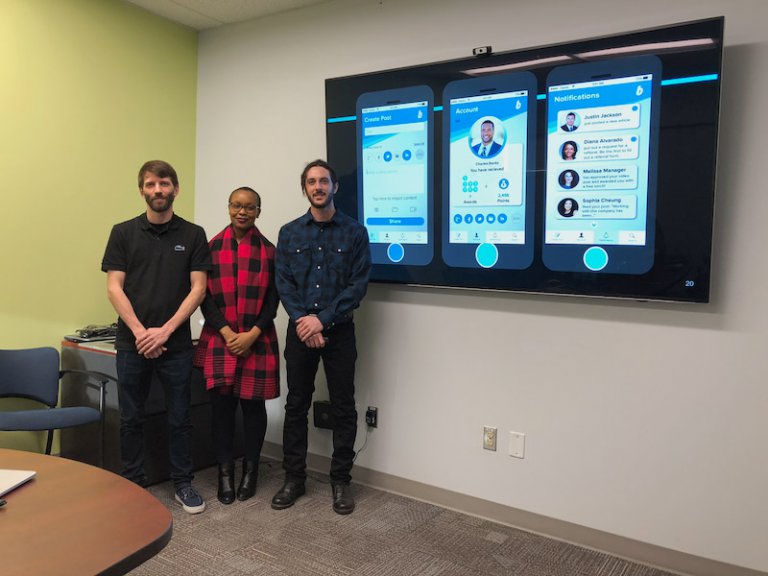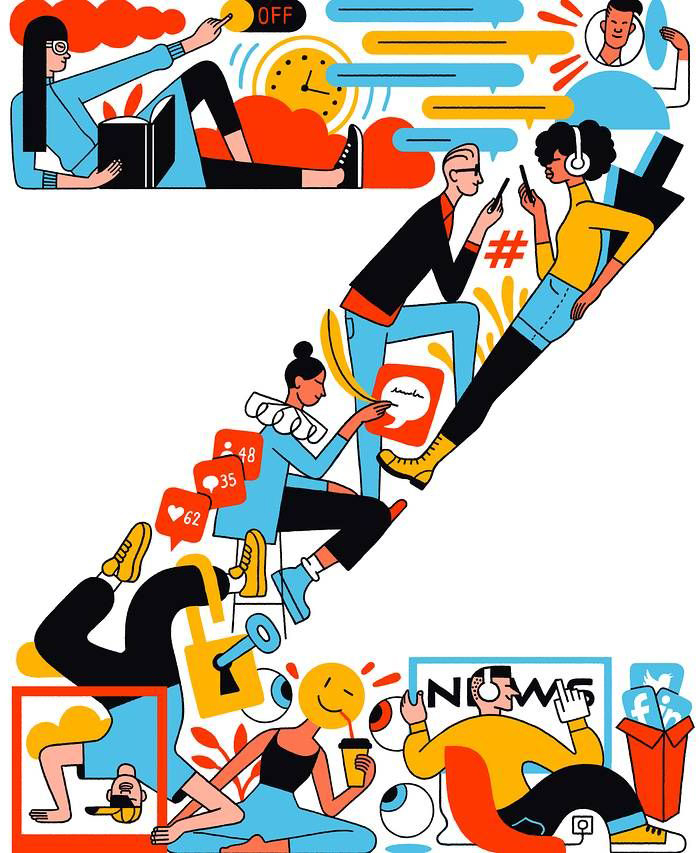Employee advocacy is an essential component of recruitment marketing, but getting employees engaged is tough. Pivot and Edge teamed up with students at Algonquin College and Carleton University to create an application to help businesses boost employee advocacy through gamification, and improve their recruitment success.
In a perfect world, we would be able to hire whoever we wanted, when we wanted. Outside of our offices, we would find a line of people stretched for miles, waiting for interviews with their smiling faces.
We do not live in a perfect world, however. As much as we would like hiring to resemble love at first sight; hiring is more like going on a string of casual dates in hopes that one will turn into something real.
In both dating and employee hiring, you have to learn who you are compatible with. To know this, you must also know yourself and your business. Authenticity is crucial when making a lasting connection.
Sometimes, our friends know us so well, that they are able to set us up with potential partners. The same goes for employees.
Employee referrals are the best source for candidates because data shows that they have already done their homework about your organization, and have bought into your vision. They onboard faster, and tend to stay with your company longer than any other source.
To encourage employee advocacy and referrals, we developed beap, an application within the Slack ecosystem that is connected to social media platforms.
We did so with the help of students from Algonquin College and Carleton University.
The application allows HR leaders to share digital content with their organization via Slack. They are able to show the world what makes their company special, through the eyes of their employees.
Content comes in the form of post-ready LinkedIn updates, that have the ability to be shared to the individual LinkedIn accounts of employees.
Future plans for gamification promise to make the process fun because the application will reward employees for their participation through the use of incentives.
Companies will be able to tap into their employee’s social media channels through beap, which will help them find more people like their best people.
Without the support of Carleton University and Algonquin College, we would not have been able to create and maintain the application. The collective effort taken by the teams of students drove the project to its current success.
Algonquin College’s, Interactive Media Design Project class has gone through three cycles of students who have worked on the beap project.
The class is designed for computer science students who are in their fifth semester of the program.
The project is not like a co-op program because it focuses on teamwork. Students are observed in a collective environment to see if they exhibit the skills they have been taught.
Larry Ross, a technical advisor with forty years of experience in software development, assisted students at Algonquin College who worked on the application.
“The students at Algonquin brought the implementation side of things,” said Ross.
The team connected beap to Slack because it allows for easier access to the application and greater communication between employees. It allows them to share jobs and stories and participate in employee advocacy.
Trung Tang, a former student at Algonquin College, who worked on the application prior to its soft release, said that at times it was challenging because they were learning as they went.
“We were a good group of students who weren’t afraid of running into the wall a couple of times. We weren’t afraid of running into problems and breaking them down. It was a good group of people who liked the challenge.”
Although supervisors were available for assistance, each group of students was tasked with figuring out the technical aspects themselves.
“The more realistic the work is, the more appropriate it is because real-world skills are developed,” said Todd Kelley, the class project coordinator at Algonquin College.
According to Kelley, each team of students followed an agile process, taking small steps to make the overall result better.
“Students get a glimpse of what real-life problems are to be solved, and what kinds of things the industry is using to solve those problems,” said Kelley.
The computer science students at Algonquin College were able to work with us on social media integration- something that the program had not focused on before.
We shared knowledge with each other, taking away new skills and tools in the process.
Kelley said that the students can use what they learned from social media integration, for future jobs.
“There is only so much that can be taught in the classroom regarding what things are like in the real world,” said Kelley.
The program allows students to get real work experience before they reach the workforce.
“It is about taking on whatever challenge is being faced by companies in the real world,” said Kelley.
A similar process was taken at Carleton University’s Sprott School of Business.
Students involved with the beap project at the Sprott School of Business participated in an experiential learning program. They took on the role of consultants.
To join the class, students must apply as if they were applying for a real job. They send in a resume and go through the interview process.
“The spirit of the program is to teach management practically. To help build bridges between theory and practice by actively doing stuff,” said Andrew Webb, the academic director of Sprott’s Project-Based Service-Learning Initiative.
The class worked through three phases. The first included a strategic plan. The second identified that Slack was the best platform to host beap on. The third and current phase is the practical approach-testing it to understand how people would use it.
At the beginning of the semester, students start their work by creating a mandate. After our initial work began with them, the student consultants quickly realized that they needed to switch course and explore the rise of Slack.
“You cannot learn management in a classroom or from a textbook. You have to actually deal with a client and figure out a problem,” said Webb.
Programs like the one at Carleton University, show students what it is like to work from the ground up.
“We did the presentation in the hallway of their [Pivot + Edge’s] offices. I thought that was fantastic because, in business school, they have a tendency to glorify entrepreneurship,” said Webb.
The incentive of the program is to instill quality management skills in students for them to take with them when they graduate.
This was achieved in a collaborative environment.
“They very quickly blended into a collective team and the students saw themselves as members of Pivot + Edge,” said Webb.
As the testing phase continues, students from Algonquin College and Carleton University, remain hard at work on enhancing the feature set.
For Webb, he sees this learning process as beneficial to the future of his students.
“The underlying and really fundamental element of this program is that it is really important for management students to give back to their community.”
He hopes the students continue their work with beap even after they have departed from the Sprott School of Business, by becoming brand ambassadors for the company.
Tang’s sentiments were similar.
“You exponentially grow your knowledge on how software works. Seeing it being put into a client’s hands, and having them actually using it, is pretty enlightening.”
Community and collaboration are the binding ingredients for a successful partnership.
This technology will enhance employer branding and job marketing so that casual employee dating is a thing of the past.
Beap has the ability to foster mutually beneficial relationships between employers and future employees, just like the partnership it was built upon.







